Baseball: How I (A Girl) Would Improve America’s Pastime
By Martie Hevia | Blue Beach Song™
BASEBALLPHILE WARNING:
This post is very long, with numerous, interesting and fun baseball-related videos. The content may incite discussions, debates and diatribes – an Umpire may be required. It is strongly suggested you grab some “peanuts and Cracker Jacks” before you begin. Play Ball!
September 30, 1927
To all the guys who might be reading this, I should warn you that I’m not a jock, I’m not even a guy, I’m a girl… I don’t throw like one, but I’m a girl… Well, technically, I’m a fully grown woman, but I was once a girl who grew up loving baseball, loving the Yankees… in part because they resided in the Bronx where my grandparents lived, where I spent my summers, and in part because they were the Yankees… you know, Lou Gehrig, Babe Ruth, Mickey Mantle, Joe DiMaggio, Roger Maris, Whitey Ford, Phil Rizutto, Casey Stengel and, my personal favorite, Yogi Berra. And, yes, my heart was broken when they tore down Yankee Stadium. (But let’s not talk about that!)
When Baseball Was Wonderful
My love of baseball extends beyond the game itself, beyond the stats and the baseball cards. There are aspects of it that I have always been inexplicably drawn to… For instance, the baseball period between the late 1800s and the early 1900s speaks to me. I don’t know why, but it does. Early baseball photography narrates its own poetic story through the sullied cracked faces and the penetrating eyes of those pioneer ballplayers who look like they have been to battle.
Performed by Jackie Gleason
I love the old ballparks, the smell of the freshly cut grass, the smack of a bat hitting a ball just so, the roar of the crowd, the seventh inning stretch, the body twitches of a runner on third about to steal home, the grace and beauty of a powerfully pitched ball, the umpire’s “Sssstrrrrrike” and “Play Ball!”
And I love the history, the poems, the songs, the stories, the romance of old-time baseball… I love it all.
by Jerry Colonna
So, perhaps, it is not too surprising that growing up I played sandlot baseball with the boys in my neighborhood, once getting knocked out as I stood on the mound, delivering what I thought was a perfectly pitched ball, which suddenly became a perfectly hit ball that smacked me on the side of the head. I heard an explosive pop and blacked out. I woke up on the ground, sometime later, surrounded by the guys staring down at me.
“Whew, we thought you were dead!” they chimed in, nervously laughing. My head was killing me, but all I could think to ask was, “Did you get him out?”
Still, I know, that for a lot of guys out there, a girl, a woman, will never know much about baseball – sandlot credentials aside – and her opinion won’t amount to much. So, take this with a grain of sand or use it to inspire some spirited discussions, but here is how I would improve America’s pastime… Baseball.
Suggestions for Improving Baseball
Rick Monday Saves the U.S. Flag
Open Tryout Day:
There are two sports movies, ‘The Rookie’ and ‘The Replacements,’ which inspired this idea: each team will hold open tryouts one day in the span of a month – no two teams on any given day, 30 teams, 30 days – giving anybody a shot at trying out for their favorite team.
Think about the marketing possibilities; about the untapped raw talent; about the dreams that could be made true; about the excitement it could generate to have your neighbor, your mailman, your dad, your son, all of a sudden become a major league ballplayer!
Through the Worst Baseball Call
Role Models:
Like it or not, the players are role-models, so, I say: no chewing tobacco, no spitting, no picking your nose, stop adjusting your cup, no swearing, no fighting, no womanizing, no smoking, and call your moms more often!
The Case for Instant Replay
Instant Replay:
What are you afraid of MLB? If football can do it, so can baseball. Instant replay will prevent an umpire from stealing a no-hitter from a really good guy and a great pitcher. (You know who you are.) Instant replay can help settle really bad calls and avoid ‘makeup’ calls.
If we can allow the time for the coaches and players and umps to stand out on the field and argue for an eternity, maybe we can avoid all that arguing, avoid the fights, and allow a couple of minutes for a quick review of an instant replay.
Fan-Friendly Training:
A little fan-friendly customer service training for the players would be a good thing. You know, a smile, a ball signing, a wave now and then, or if it’s just not in them, they can learn to fake being nice to the kids and their fans. It’s not a lot of effort, it’s good PR, and they will make the day of some kid who idolizes them.
The Case for Anger Management Classes
Anger Management Classes:
These anger management classes would benefit coaches, players, umpires… even fans. Let’s bring it down a notch, in the end, it is supposed to be a game. (Dodgers and Giants fans, are you listening?)
Shorten the Season:
Call me crazy, but does 2,479 games sound like a lot? (Specifically, 2,430 regular season games + 49 possible post-season games.) Crazy, right? There are 30 teams in Major League Baseball and each team plays 162 games, 81 home and 81 away – no wonder there are so many injuries by the time they get to the post-season!
If the season weren’t already long enough, then the addition of the league championship series and the division series, which have further extended the season from April to late October into November, surely has made it more than long enough. What will happen with the expansion of the playoffs from 8 to 10 teams in 2012?!?! Does each team really need to play each of the other division teams 15 to 19 times (depending on the league and division)? How about the 250+ inter-league games, do we need all of those?
The teams might actually fill their stadiums if there were fewer games and, as a result, each game meant a little more. Just a thought.
Ed Sullivan Show | April 13, 1958
Yankees & Composer, Jack Norworth
Shorten the Game:
Okay, if the season isn’t long enough for you, how about sitting through a four-hour game? Why does it sometimes take four hours to play a game – it is not a marathon, it is a game. I understand that in part that’s a result of extra innings, but sometimes the games drag on because of little things, like the guys adjusting their batting gloves after every pitch. Let’s hustle out there – no leisurely walks to and from the outfield, no meandering from the dugout to the batters box, chop-chop, let’s go, people are paying good money to watch you play. Let’s work on that.
|
No Late Games:
What’s up with East coast games on a Sunday night that start at 8pm and end past midnight? That’s fine for us on the West coast, but back East these late games make it tough for young kids, or people who have to work Monday morning, or older people – by which I mean anyone over the age of 25 – who are not accustomed to getting by on a couple of hours of sleep due to a night ball game that went into the next day. Seriously, MLB, can’t you start a Sunday night ballgame before 8pm? Yes, you can.
Affordable for Families:
We really need to work on this one, from tickets to hot dogs – we need to lower the cost of attending a baseball game. It costs a fortune for a family of four to attend a ballgame, consider the $50 ticket, the $25 parking, the $7 game program, the $6 hot dog, the $5 soda, the $3 ice cream cone, and forget about getting any souvenirs.
Angry MLB Fans Speak Out
We’ve lost the affordability for any parent to take their family to a ball game. America’s pastime has become cost-prohibitive for most families. I wonder what will happen to Baseball’s popularity when average Americans, especially young Americans, are no longer able to afford to go to ballgames?
How will the young ones develop their love for the game when there are no memories of attending a major league ballgame with their mom and dad; no memories of walking into an enormous and majestic ballpark as the ballplayers warm up on the field; no memories of singing ‘Take Me Out to the Ballgame‘ with hundreds of thousands of other fans?
Hmmm… Soccer, anyone?
Stop Catering to Rich Corporations:
When MLB teams started catering to rich corporations for their big corporate dollars, they stopped thinking about the average American family. So, I suggest, no more corporate luxury boxes, prime seats, and waiters serving fancy foods – yes, I have been in a luxury box during a game and I couldn’t tell that I was at a ballgame.
The San Francisco Giants’ Ballpark
The corporations might put money in the pockets of the MLB and the owners of the teams, but the game will lose its fans. The corporate box attendees are not true fans. These corporations use their prime tickets or luxury boxes to impress visiting clients or colleagues. These corporate attendees show up late and leave early, spend the time talking on their cell phones – not following the game, and dress like they are going out to a party afterward.
The race for the almighty dollar has turned ballparks into multi-purpose amusement park-malls with diverse restaurants, a plethora of activities – from miniature golf to water slides, art galleries, and stores galore! The ballgame itself has become almost secondary, merely an excuse for attending an amusement park-mall, which has unfortunately been mislabeled a ballpark.
In truth, it’s annoying, it takes away from the game, it’s distracting, and it pushes up the price of all the seats, especially the good seats. (And the fact that the Steinbrenners demolished Yankee Stadium to build a new one that could accommodate big corporate luxury boxes… well, as you can see, that has not colored my biased opinion one tiny bit.)
Taxpayers:
This, I think, most of us can agree to: taxpayers should not have to pay for the ballparks and stadiums that make billionaire team owners richer. Let the team owners or Major League Baseball pay for them. They are the ones who make huge profits through their lucrative monopoly.
for Yankee Stadium
The taxpayers have enough trouble finding the money to fix the roads, maintain the schools, pay for police and fire departments, and meet our obligations to take care of the sick, poor and elderly. We cannot afford to finance the building of stadiums for billionaires. Do I need to say more?
Anti-Trust:
In the 1922 decision in Federal Baseball Club of Baltimore v. National League, the Supreme Court declared that baseball was a game, not a business, giving Major League Baseball, in effect, an anti-trust exemption. When the court revisited the issue in 1953, it left the matter to Congress to correct through legislation, if warranted. Congress has yet to pass any legislation that would take away MLB’s exemption.
Well, it may have started out as a game, but I think the billionaire owners and the millionaire players and the corporate luxury boxes in the stadiums clearly show that somewhere along the way, baseball evolved into BIG business. So, I think it is time that we get rid of MLB’s anti-trust exemption, after all, no other sport has it. Leave the 19th Century romantic view of baseball in the history books and in the old photographs where it belongs, and let’s look at baseball for what it is: a big business monopoly. It is time Congress corrected that.
Outfield Fences:
From one MLB park to another, why is the distance from home plate to the fence allowed to vary anywhere from 302′ to 355′ along the foul line and 390′ to 435′ through center field?
How to Play Baseball by Goofy
Most other distances on the field are strictly controlled: from the mound to home plate it is 60′-6″; from base to base it is 90′ precisely; the pitcher’s mound is 18′ in diameter; and so on. But the height and distance of the outfield fence is allowed to vary, even though something as important as home runs are clearly impacted by those changes in height and distance.
Consistency in the distance to the outfield fence and the height of that fence should be the same across ballparks, if not, what’s the point of comparing home run stats?
Equipment:
Let’s have consistent and clearly specified standards in gloves, cleats, uniforms, and bats… like we have with the balls. Have you seen the size of some of those gloves, lately? What’s next for those outfielders… nets on a stick? (And, while we’re talking about it… no metal bats, for anyone.)
1975 N.L.C.S. Highlights (Check Uniforms)
Uniforms:
Just pick one already! Why do teams need so many versions of a uniform in one season, or completely different uniforms over the years? (Marketing, I know. This is one way MLB gets people to buy the latest jerseys and hats, even if they have a dozen other versions.)
1975 A.L.C.S. Highlights (Check Uniforms)
The Yankees and Dodgers understand that once you find a classic look, you stick with it – even more than 70 years later. (There is no denying the beauty of those Yankee pinstripes.) A few more honorable mentions from current uniforms would have to include: the Detroit Tigers, the Oakland A’s, and the Boston Red Sox.
All the crazy experiments with uniform styles and colors over the years are… well, unfortunate… Just consider the uniforms worn by the 1980 Houston Astros… or the 1971 Baltimore Orioles… or the mid-1970s Cleveland Indians… or the 1979 Philadelphia Phillies… or the 1970s San Diego Padres… or the 1972 Oakland Athletics alternate uniforms… or… I could go on!
Hmmm… Then again, maybe it’s a good thing that teams keep changing their uniforms, especially if they look like those unfortunate experiments mentioned above. Keep trying until you get it right, I guess… and then, please, stop!
No Designated, Courtesy or Pinch Hitters and Runners:
Yes, I really hate the designated hitter, the pinch hitter, the pinch runner, and Charlie Finley’s ill-fated designated runner. I don’t care if you are a great pitcher who can’t hit, or a great batter who weighs 300lbs and can’t run, or if you got injured running around the bases.
In His Own Words
If you want to play baseball, you need to be a complete player, which means you need to throw, catch, hit and run – that in a nutshell is the game.
Baseball 1920s – No Designated Hitters
All these designated, courtesy, and pinch runners and hitters are as ridiculous to me as a designated cup adjuster, or a pinch nose picker, or… well, you get the idea.
The players will need to be jacks of all skills: the pitchers will have to bat, the batters will need to run, the runners will need to field a ground ball… and if you are injured on the field, then hobble across the bases, but unless you are out cold taken away on a stretcher, you will need to swing a bat and cross the finish line (home plate) on your own.
Yankees vs Phillies
No Trading:
The trading has gotten ridiculous. How late into a season are the teams allowed to swap players? Too late into a season! I don’t like it when they bring in hired guns to go into the playoffs. For me, the joy in baseball is not just about winning, it’s about teamwork, it’s about beginning and ending a journey together – getting through the good and the bad together.
So, I propose that the team you start with, is the team you end with – replacements can only come from your farm system, and only in case of injury. This will bring another element to the game, the manager will be forced to strategically play and protect the players for the long-haul. In effect, your end-of-pre-season team is your end-of-post-season team.
Yankees vs Dodgers
Encourage Teams to Develop Their Own Players:
The buying of great players from other teams in order to build a team of superstars should be discouraged – see the ‘No Trading’ section above. Each team should have to develop their own players through their farm system. What is the point of having a farm system, if you are just going to buy the best players from other teams? You want to watch a team of superstars, wait for the All-Star game. (Hey, if the pinstripes fit…)
Who’s On First? by Abbott & Costello
Grow Team Fan Loyalty:
This one is related to the previous two… For many kids today, their loyalty is to their favorite player, and it travels as the player travels from team to team.
Can you blame them?
What’s the point of becoming a fan of a team, when – after getting to know the players, memorizing their names and stats – you wake up one morning to read, mid-season, that your favorite player today will be playing for the enemy, next week. Or worse, to read that a hated player from an opponent’s team will be allowed to play on your team in the post-season! It’s easier to just follow your favorite player from team to team.
Take Me Out to the Ball Game
Old Busch Stadium
If the MLB teams want to grow their fan base, if they want to fill their stadiums, if they want to keep people in their seats through the ninth, how about keeping a player for at least 5 years, let the fans get to know the players individually and as part of a team.
Fan loyalty will increase when the fans can invest emotionally in their team, like in a soap-opera, vicariously living the ups and downs of the players, reading about the great friendships and competitive relationships between them, really caring when a player is injured and whether he gets better or not, because your team and the other guys will depend on it. Make it a book with a cast of characters that cannot be put down.
(Contains Adult Language)
Zero Tolerance on Cheating & Gambling:
If you are a player caught cheating the first time, you are kicked out of baseball, no ifs, ands, buts, or Hall of Fame. That means no corked bats, no spit balls, no steroid use, no gambling, no breaking the rules. The players are adults, they understand what is and isn’t allowed, there is no need for a second chance on using steroids or corked bats or greased balls or illegal substances. These are all intentional acts. (I’m not budging on this one.)
Steroids in Baseball
Steroids & Enhancements:
Strict steroid testing, ongoing education, and banishment as punishment – a zero tolerance policy. Stringent control and standards need to be applied to any performance enhancement drugs, supplements, and/or vitamins that may be allowed in the future.
Voting for a Commissioner:
Allow the fans to vote for the Commissioner of Baseball, who will be limited to a three year term – long enough to get something done and, if not, long enough for the fans to know they need a new commissioner. (And, no former owners allowed on the ballot.)
1950 All Star Game at Comiskey Park
All-Star Games Only After the Post-Season:
Why take a chance on allowing players, with World Series potential, to get hurt during a game that doesn’t really mean much, in the middle of the season, when we don’t yet know who the ‘super stars’ of any given season will be? Why not wait until after the post-season? Then again, does a season with nearly 2,500 games really need one more game?
October 5, 1959
World Series:
Why do we call the World Series the ‘WORLD’ Series, when we don’t play other countries? (We cherry pick players from other countries, but that’s not the same thing.) If we want to call it the World Series, then perhaps we should play the best teams from other countries, otherwise, it is just the Major League Baseball Championship Series.
However, why not have a real world series with champion teams from countries around the world? Imagine our MLB Championship team playing against national teams from Japan, the Dominican Republic, and Cuba, to name a few. Baseball could become bigger than soccer is around the world! (“Ruuuuuuuuuuuuuun!!!!!!” No, it doesn’t work.)
by Professional Baseball Scorekeepers
Stop Changing the Rules:
Perhaps no one can do anything about this one, but for kids and adults who love to memorize the players’ stats and argue over who was the better player or team – something that is so much a part of the game – the constant changing of the rules makes the comparison impossible to do across eras.
How do you compare anything like home runs in a season when the number of games played in a season has changed over the decades? How do you compare this pitcher with that pitcher, when the mound height has been lowered (from 15 inches to 10 inches) to encourage more hits? How do you compare this batter with that batter when the strike zone has been made smaller?
These and countless other changes have made it impossible to compare stats from today to stats from old. Perhaps MLB can develop a software program for the fans that will translate the differentials and make it possible to compare two sets of stats from across different baseball eras and ballparks – it would resolve many a passionate argument. Until then, stop changing the rules.
Comcast Sportsnet Chronicle
Let Them Move:
The Baseball Commissioner, Mr. Selig, seems to pick and choose how and to whom he will apply the rules in many situations. Such a situation is his decision to not allow the Oakland A’s to move to San Jose.
Why? Because the San Francisco Giants don’t want them to. The Giants claim marketing rights in the San Jose area. But, why not swap? After all, Oakland is closer to San Francisco. The simple answer is that San Jose has big corporate money in Silicon Valley and Oakland does not. Ironically, the A’s used to have marketing rights over San Jose, until they gave those rights to San Francisco at a time when the Giants were thinking about moving south, long before they got their new stadium.
What I don’t understand is Bud Selig’s inconsistency – why can Washington D.C. get the Nationals – formerly known as the Montreal Expos – when they are so close to Baltimore? What about the Orioles’ marketing rights? The poor A’s have ranked in the bottom five in home attendance in the last five seasons, and their stadium is falling apart. San Jose is a more populace and prosperous city than Oakland and without its own baseball franchise. I say, let the A’s move, the Bay Area can handle it, MLB can handle it, and the Giants will get used it. Play Ball!!
The Negro Baseball Leagues
Let Them Play:
Baseball, through the decades, has learned to be all-inclusive, inviting Blacks, Hispanics, and Asian players, among others, to join their ranks. But there is one important group that has been shut out: women.
Hold on, I’m not saying give them a free-ride, but if they have the talent and can play with the big boys, why not? When the men went off to war in the 1940s, specifically 1943 to 1954, the All-American Girls Professional Baseball League sprung up and the women surprised everyone by playing very good and very aggressive baseball – even in little skirts. So, I say: let them play! (But lose the skirts.)
Old Baseball Parks
The Naming of Ballparks:
This is more of an annoyance, but since we are on the topic of improving things… please name the ballparks after the teams that play in them or the cities in which they reside. I really don’t like this revolving door of corporate names that has become a trend since the mid-1990s.
For example, here in the Bay Area, the San Francisco Giants played originally in Candlestick Park (1960-1995), which became 3Com Park (1995-2002), which later changed its corporate name a few more times, but by 2000 the Giants had moved to a new ballpark… PacBell Park (2000-2003), which was renamed SBC Park (2004-2005), which then became AT&T Park (2006-2011), but who knows what it will be named next.
The wasted cost in signage, not just for the teams, but for the cities, is in the millions. (Not to mention the confusion to the fans and the sports announcers.) Just pick a stadium name everyone can live with – for instance the team or city name – and stop selling the naming rights to the highest bidder. For Pete’s sake, what’s next, Viagra Stadium?
Take Me Out to the Ball Game
The Naming of Teams:
This suggestion might seem silly, but… The teams must use the name of the city in which they play, not the one they wished they played in. (Yes, Los Angeles Angels of Anaheim, I am talking to you!)
And, please, indulge me this aside, since we are on the topic, football teams have this problem, too. Specifically, the New York Giants and the New York Jets, who both play in New Jersey – that’s not even a different city, it’s a different state!
What’s wrong with Jersey, anyway?!?! I mean, aside from the whole Jersey Shore thing… and the New Jersey Housewives thing… oh, yes, and the Sopranos thing… or the whole Mob thing, in general… you know, the first thing, not the second thing… oh, fuggedaboutit!
The Star-Spangled Banner
Learn the Songs:
This final suggestion is for all of us… the fans. Before going out to the ball game, to avoid all that embarrassing mumbling, we might want to learn the words to the songs: ‘Take Me Out to the Ball Game’ and ‘The Star-Spangled Banner’ – considering that we sing them at every single game. So, thanks to the Internet, here are a couple of sing-a-long karaoke videos to help in that endeavor… or just for fun!
And that’s how this girl would improve America’s national pastime
“I see great things in baseball. It’s our game – the American game.”
~Walt Whitman
Martie Hevia © 2011 | All Rights Reserved

Baseball Products & Designs by Blue Beach Song
Baseball Art & Photographs
Trackbacks
- Improving America’s Pastime: Baseball | Suggestion #13 – Equal Outfield Fences | Blue Beach Song™
- Improving America’s Pastime: Baseball | Suggestion #12 – No Anti-Trust Exemption « Blue Beach Song™
- Improving America’s Pastime: Baseball | Suggestion #11 – No Taxpayer-Financed Ballparks « Blue Beach Song™
- Improving America’s Pastime: Baseball | Suggestion #10 – Stop Catering to Rich Corporations « Blue Beach Song™
- Improving America’s Pastime: Baseball | Suggestion #9 – Affordability « Blue Beach Song™
- Improving America’s Pastime: Baseball | Suggestion #8 – No Late Games « Blue Beach Song™
- Improving America’s Pastime: Baseball | Suggestion #7 – Shorten the Game « Blue Beach Song™
- Improving America’s Pastime: Baseball | Suggestion #6 – Shorten the Season « Blue Beach Song™
- Improving America’s Pastime: Baseball | Suggestion #5 – Anger Management « Blue Beach Song™
- Improving America’s Pastime: Baseball | Suggestion #4 – Fan-Friendly Training « Blue Beach Song™
- Improving America’s Pastime: Baseball | Suggestion #3 – Instant Replay « Blue Beach Song™
- Improving America’s Pastime: Baseball | Suggestion #2 – Role Models « Blue Beach Song™
- Improving America’s Pastime: Baseball | Suggestion #1 – Open Tryout Day « Blue Beach Song™
- Coaching Baseball » Little League Baseball Training


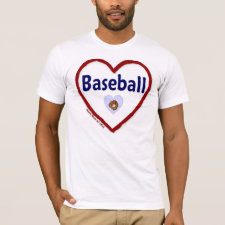
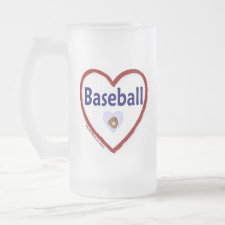



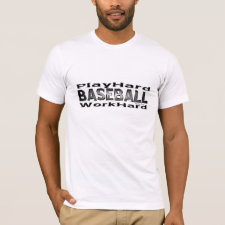


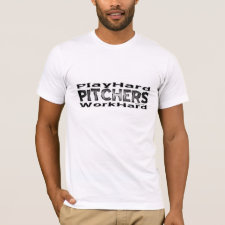

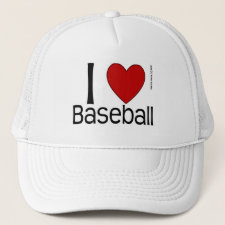
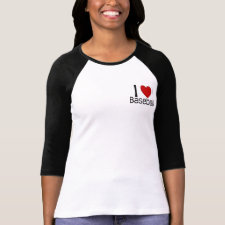
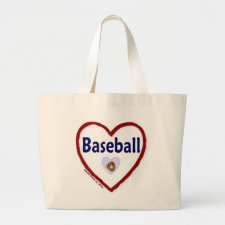
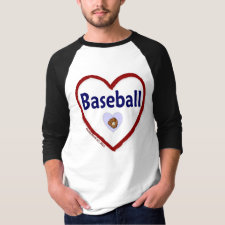
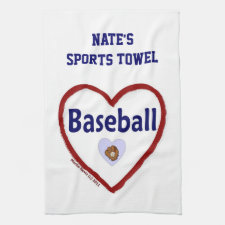


















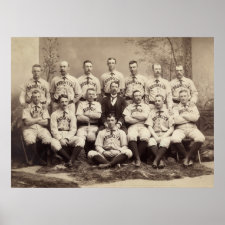






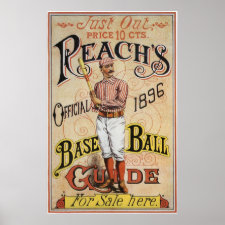





















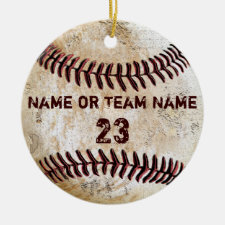
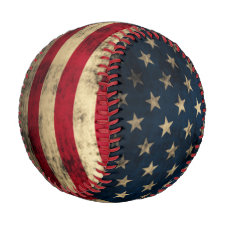





I admit that I don’t understand a whole lot about anti-trust laws. Everyone has heard that they were establish to prevent monopoly control of an industry, but not much more. While I was reading I came across the Curt Flood Act of 1998. It removed MLB’s exemption to anti-trust law only in matters affecting contracts and dealings between players and franchises. It essentially outlawed anything like the reserve clause and maybe other things I’m not aware of. It specifically states that the anti-trust exemption remains in place for things like the draft, team relocation and expansion, broadcasting rights, minor league affiliation, and it does not apply to minor league players. It sounds to me like they only put in to words what had already been achieved by free agency. It was easy to find online and the actual wording of the act itself is only about a page and a half if you’re interested.
As for moving teams, I can’t think of another metropolitan area in the US that could support a major league team. If there are any areas they would probably be considered small markets. Most of the ‘smaller’ big cities already have a triple-A team. Here’s an article I found from 2000 about what might happen if baseball lost it’s anti-trust exemption.
http://www.salon.com/2000/05/19/antitrust/
In your “Let the Teams Move” improvement for baseball, you asked why the Expos could go to DC(near the Orioles) but the As couldn’t go to San Jose. There was some complicated deal worked out between the Orioles and Nationals owners. Get this– The Expos can go to DC if the Os get their broadcast rights. This I guess based on the reasoning that the Nats are in a broadcast area that should belong to the Orioles. Nats and Os games are shown on MASN(Mid-Atlantic Sports Network). MLB helped to set up this network when the team moved to DC. MASN was 90% owned by the Os. The Nats got the remaining 10%. The deal does allow for the Nats to gain 1% ownership each year, up to 33%. Every five years the Nats and MASN negotiate a new deal to determine what the Nationals payout will be. Sounds kind of shady.
At least the District of Columbia required 50% private financing when it came to building a new stadium for the Nationals. But at first, MLB said they would look at other markets, when they heard about this. So the city had to change other things about the deal. And originally the DC council had objections to financing a stadium that would benefit many people in the towns surrounding DC, though these towns would receive the benefits of a baseball team without contributing money. I think it sounds like a legitimate concern, considering DC itself only has a population of 700,000 though the metropolitan area has 5.5 million people. I tell you, I never should have read your thoughts on baseball. The more I look into this stuff the shadier the business of baseball sounds.
And as I sit trying to pretend I’m really interested in the world series, I’ve come to the conclusion that the season IS too long. In my perfect world, I would take 2 weeks off the end of the season to start post-season sooner. But you must be happy that the Giants now lead the series with 3 straight wins.
Hi again, I’m back to bug you about baseball talk. I was wondering what you meant about the anti-trust exemption in your original improvements to the game. In my original reply to your improvements, I assumed you meant that there were no other professional leagues separate of the current MLB organization. There are leagues that are separate from MLB, and they are not connected with the minor leagues either. Not trying to insult your intelligence or point out the obvious to you–you’ve read a lot about the sport and have given some thought to the issues affecting it. I just don’t know how many people know this. I didn’t know about these unaffiliated, independent leagues until this past spring. (and I’m 32)
I think it’s great. To me it kind of represents the whole idea of the little guy in America who is trying to make it by his own hard work instead of quietly going along with the status quo corporate system aka MLB. Maybe I never heard of these independent leagues because they are mostly in the eastern US. Here’s a link to an independent league that has a team in San Rafael. I think that’s around the bay area somewhere. http://www.northamericanleague.com
In any case, I was wondering what you meant by the monopoly and anti-trust stuff. I haven’t really read that much about how anti-trust laws relate to the business of baseball.
Hi Jared, no worries, I am not offended by your questioning my desire to get rid of MLB’s anti-trust exemption. As you may know, anti-trust laws were created to keep businesses from monopolizing their given market. Major League Baseball is the only professional sport with an anti-trust exemption simply because the courts determined long ago that it was a “game” and not a “commercial enterprise,” in other words, the courts did not consider Major League Baseball a business. In 1903, the National League and the American League joined forces and became what we know as MLB. In 1915, a third league, the Federal League, sued Major League Baseball under the federal anti-trust law for keeping them from being able to hire MLB baseball players who were in-between contracts due to MLB’s “reserve clause” which bound players to their teams, even after their contracts expired. The Federal League later dropped the lawsuit as they were unable to compete and their players and owners were absorbed into the MLB. The Baltimore Franchise from the Federal League, however, filed an anti-trust lawsuit against the MLB in 1919 and won, but it was overturned by the Supreme Court in 1922. In 1953, George Toolson sued the Yankees over the reserve clause, claiming it violated anti-trust laws, but again the Supreme Court stood by its 1922 decision. In 1972, after being traded, Curt Flood sued MLB under the anti-trust exemption, claiming he was not “a piece of property to be bought and sold” irrespective of his wishes. The Supreme Court, although criticizing MLB’s anti-trust exemption, said it was up to Congress to fix the “anomaly” in the law and did not overturn the earlier courts’ rulings granting MLB the exemption. Eventually, Curt Flood’s case did lead to collective bargaining, salary arbitration and free agency. However, because of the anti-trust exemption minor league players are tied to the MLB club that signed them and Major League Baseball has the power to dictate broadcasting agreements, league expansion or contraction, and franchise/team sales and moves. (Hence, my complaining about the Oakland A’s being blocked from moving to San Jose.) Thanks for the question! -Martie
Hey again,
I read something about Bobby Valentine, the Red Sox manager, and it reminded me of your comment about having a World Series that actually has some international aspect. Bobby Valentine managed in Japan from 2004-2009. He led his team to win their league pennant and the Japan Series(their World Series) in 2005. The day after the last game he issued a challenge to that year’s World Series-champion White Sox. He wanted a World Series between the American and Japanese champions. I’m getting this all from Wikipedia. I did find this article from ESPN.
http://sports.espn.go.com/mlb/playoffs2005/columns/story?columnist=klapisch_bob&id=2205331
Ozzie Guillen was managing the White Sox at the time. I don’t know what he thought of it, but these are two very strong personalities in the sport. Guillen, of course, is also known for not being able to edit or censor his own statements–the stuff about Fidel Castro and an incident with rookie Bryce Harper earlier this year. And this year it seems like he is taking a lot of heat for Boston’s poor season, but check out the article. It seems he does some unusual things yet there are former players who say that he got them to see the game in a new way.
Thanks, Jared, I will definitely read the article. Too bad Ozzie did not accept Bobby Valentine’s challenge, that would have been an interesting ‘World’ Series! I’m still hopeful that some day we will have a ‘true’ world series, especially since the Olympics no longer include baseball. Thanks, again, Jared!
I’ve only recently gotten into the habit of reading about baseball. I always enjoyed the game but for some reason never cared much about the business of it. For whatever reason I’ve become more interested in that aspect of the sport in the last few months. And that’s what led me to searching for blogs–and I found yours. I did a little more reading about cities financing the building of stadiums. I’m assuming you mention that because of the controversy surrounding the opening of the new Yankee Stadium. I didn’t realize there had been such a big deal about it. It does sound like a funny deal.
From what I read, the city owns the land and the Yankees own the stadium. However, the Yankees do not have to pay rent or property taxes for the land they are using. A lot of savings over the time they will use the land. And the only thing they use the land for is to run their business(baseball) to make money. Most Americans pay rent for an apartment or property taxes for their home, but the Yankees are not required to make any such payments on their home.
The Yankees also got a lot–A LOT– of financing from tax-exempt bonds issued by the city’s Industrial Development Agency. The agency sells the bonds and uses the money to finance the construction of Yankee Stadium. Tax-exempt bonds will pay a lower interest rate, but investors still buy them because of their tax-exempt status. The Yankees received over $900 million from the sale of these bonds. What the Industrial Development Agency is doing is passing on interest savings to the Yankees. The agency can allow the Yankees to pay a lower interest rate because the agency is going to pay a lower interest rate to those who bought the bonds. With any type of bond, the only part you pay taxes on is the interest received when you are paid back. $900 million would accrue a lot of interest, and the tax on that interest would be a nice bit of income for the city. So the city essentially took potential income from the people and gave it to the Yankees.
From a New York Times online article from 16 January 2009–
Randy Levine, the Yankees’ president, said that without the additional tax-exempt financing (the development agency issued $942.5 million in 2006), completing the stadium “would be difficult and challenging, but not impossible.” He did not give details of what would not be finished, or built, if the Yankees did not get the financing.
So the Yankees president thinks his organization should not have to do something difficult and challenging and that the people of New York should pay for it instead. Avoiding difficult and challenging things hardly sounds like the spirit of American business and enterprise. The people have to subsidize whatever business the city thinks should succeed. I won’t go so far as to say this is evil, but the city of New York entered into a business deal that doesn’t seem to have a whole lot of benefits for them.
Hi Jared, yes, there is that financial issue with Yankee Stadium, but my objection was more on the grounds of history and nostalgia. They tore down the old Yankee Stadium to build the new one next to the old location. I know it is silly, but there was something special about knowing that all the Yankee baseball greats stood at that home-plate… which is now in the parking lot of the new Yankee Stadium. No parent will ever be able to walk into the original house that Ruth built (even though it went through major renovations in the mid-1970’s) and say “That’s where Babe Ruth and Joe DiMaggio and Mickey Mantle and Yogi Berra… and so on… stood. That’s the field where they played.” That bit of history and nostalgia has been torn down and is now a parking lot. (“They paved paradise and put up a parking lot.” If I may quote Joni Mitchell, songwriter.)
My objection to teams that try to get the cities to finance their stadiums is that it is unnecessary to burden the taxpayers with that. The former Brooklyn Dodgers privately financed their stadium in Los Angeles in 1962. The former New York Giants, the San Francisco Giants, tried to get the taxpayers to pay for a new stadium and the voters in San Francisco rejected them the four times it was up on the ballot. Finally, in 2000, under new ownership, the Giants privately financed their own stadium – a truly beautiful ballpark – without any taxpayer/public funding. I have been there many, many, many times and it always seems to be sold out, so paying off their debt has not been a problem for the SF Giants.
It’s too bad the Yankees didn’t learn a thing or two from their former New York rivals!
Currently, we’ve had quite a bit of controversy in the San Francisco Bay Area over the San Francisco 49ers wanting the City of Santa Clara to co-finance their new stadium. The California state budget and the local city government budgets have been in the red, shutting down fire stations, cutting back on police officers, and many city and state services, so people are a bit sensitive – as am I – over wealthy millionaire/billionaires asking the taxpayers to build them a stadium. The city of San Francisco refused to pay for a new stadium to keep the 49ers, so the 49ers started shopping around for a new city. In the end, I think the 49ers are trying to pressure San Francisco to pay for it, but the city didn’t do it for the Giants, so, I doubt they will do it for the 49ers.
In truth, it has become a problem everywhere for cities that want to keep or lure professional sports to their area.
In a couple of the articles I found about Yankee Stadium, it said that the Yankees had also made statements that implied that they might have to leave New York if they did not get a new stadium. They may have been pulling the same trick you say the 49ers are doing. Stadium owners say that a baseball team and new stadium makes jobs. That’s partly true. I think the Yankees had to agree that a certain percent of the construction be done by New York companies. But the argument of employing people at the gates and souvenirs and concessions is hardly valid. I don’t know what they make but I hardly think a person can really get by selling hot dogs 6 months of the year–even in a major league ballpark.
I would consider myself a bit of the nostalgia type like yourself. And the Yankees deal seems ridiculous since they supposedly tried to make it look like the old stadium. I first went to Dodger Stadium in 1988, when it was 26 years old. I’m 32 now and it’s hard to believe that it is one of the oldest parks in either league–and it still looks very modern thanks to some very good off-season renovations in the early and mid-2000s. Renovations that actually returned the stadium closer to it’s mid-60s look.
You should do more baseball on your blog or make a baseball section and put more stuff on it. All the things you mentioned in your 30 Improvements for the Baseball article are the type of things I would rather discuss with others about baseball. I found your blog because I was looking for blogs or baseball websites to follow. Most other sites discuss the latest trades and the details of someones contract and how a team played yesterday and how two teams will do in the upcoming series. All that stuff sort of bores me because it’s mostly little bits of information that will be forgotten within 2 days. I couldn’t really find anything that wants to focus on broad underlying issues in baseball–stadium financing, female players, designated-hitter rule, banishment from the game, and so forth. (side note–I just found out that Mickey Mantle and Willie Mays were both banned from baseball for 3 years and then reinstated! Crazy, huh!) So if you know any baseball blogs I might like send them my way, and keep the good stuff coming if you can.
Thanks, Jared. I agree with you, my baseball interests are more tied to the bigger issues than the day-to-day trades. If I find any baseball blogs like that, I’ll let you know. (Likewise, let me know if you find any.) There is one baseball site that I do love: Baseball Almanac – http://www.baseball-almanac.com/ – they have all the things I love about the game – the history, the poetry, the stories, the songs, the quotes, they old-time stats, and, so much more! In general, it is the kind of site that you want to go back to over and over again to discover more great stuff. I think you’ll enjoy it.
And, surprisingly, no, I didn’t know about the 3-year ban for Mantle and Mays, but I’ll have to look that up as soon as I finish here.
As for the old parks, I prefer that they renovate them rather than tearing them down to build new ones. Unfortunately, when the Dodgers left Brooklyn for Los Angeles, the historic Ebbets Field was torn down. It was torn down before I was even born, but in the old photos it looked beautifully and classically “old-time-baseball.” I hope they never touch Fenway Park, built in 1912, it is one of the only remaining truly old ball parks – the Green Monster is an icon.
Great discussions, Jared! Thanks. -Martie
Hey there, Blue Beach Song. Is there a way to edit my previous post?
Hey Jared, I don’t see a way for you to edit it, but you can just write another comment correcting or editing the points you made. -Martie
Just my opinions on your points–
1)Open tryouts–there already are tryouts. Dig a little deeper around the MLB and team web sites. You’ll find high schools/community colleges and dates. But what you suggest would only be a publicity gimmick.
2)Role models–Isn’t it just as likely that a real jerk is born with exceptional athletic ability. Maybe parents need to raise their children instead of letting the television do it.
3)Instant replay–No. As you point out, the game is already long enough. It’s partly why I dislike football; you can whine about anything that doesn’t go your way.
4)Fan-friendly training–See #2 If a player is a jerk, quit paying his salary and don’t go to games.
5)Anger Management–Those are fun to watch, but maybe a little more restraint a little more often. I think umpires are also getting soft on managers and players all around.
6)Shorter Season–A little shorter, maybe 10 to 16 fewer games so that post-season play can start sooner.
7)Shorter Game–Agreed! It is up to the home plate umpire to grant the batter time out. That’s in the rules. As I already mentioned, I think umpires are getting soft and are afraid to say no to a batter.
8)No late games–That 8pm business does seem strange. But Bud Selig will let television decide everything because he mostly supports the owners and their earnings.
9)Affordable for families–I’m glad I don’t have kids cause I love to go to a game. Families might have to find a favorite minor league team nearby if Dad and Mom don’t want to break the bank.
10)Stop catering to rich corporations–You seem to think that a lot of baseball is about money. I agree, but I don’t think owners would keep these fancy suites if they didn’t pay. They probably are trying to impress guests–guests who will invest money or pay for an ad or will become a team sponsor, which will pay for the seats that are lost and then some.
11)taxpayers–I don’t think this this is baseball’s fault. Talk to you city council. Teams usually have lease on a municipal or county stadium. Last I checked you paid for a lease. Your city council choses to use taxpayer dollars to build a stadium. Again, it comes down to economic factors. Decide if you want a baseball team or better public services.
12)Anti-trust–what aspect of anti-trust are you talking about? Players won free agency in 1976. Are you talking about people forming new teams. In some places in the country there are leagues that are independent of MLB or their minor league affiliates. I’ve been to a couple of these games. I really enjoyed it. The stadium was pretty nice and the level of play is about like AA minor league baseball.
13)Fences–Not a big deal. Everyone gets the same advantage/disadvantage when playing in that particular park. Yes, if you’re stuck on stats you might have a problem. But I don’t think Babe Ruth or Hank Aaron hit so many home runs because of one or two outfields that were too small. And no one should touch Wrigley’s ivy or Fenway’s monster.
14)Equipment–Not sure exactly what you’re getting at. This is something else that is covered in the rules. Write to MLB if you think they should be changed
15)Uniforms–Baseball is a business and I’m not really concerned about something that doesn’t actually affect the play of the game. Again, no one is forcing anyone to buy a new jersey every year. Sure, the Yankees and Dodgers have a specific logo image that people are familiar with because those teams have barely changed over the years.
16)Designated Hitter–TOTALLY AGREE! Baseball is a game between teams of nine. You have to play defense and offense.
17)No trading–This will never happen, and I don’t think it should. Besides, we have free agency so this battle was lost ages ago. Maybe limiting trading to the off-season and then you have to work with what you got on your roster or in your farm system. Which goes along with–
18)Develop farm system–this is related to the last one and the two go hand in hand. Sometimes several minor league players are traded for a proven major league player.
19)Team fan loyalty–I don’t see as much player-specific loyalty as you. Yeah, fans are sometimes fans of a certain player, but it seems to me that players are soon enough forgotten when they go to a different team. People like to cheer for someone they can see play. So fans follow a player on a different team far less if you never get a chance to see him play because he’s not on the local baseball coverage each night and you’d have to drive 10 hours to see him play.
20)Zero-tolerance–YES
21)Steroids–Isn’t this kind of like the last one? Anyway–YES!! Remove the records of certain steroid users.
22)Vote for a Commissioner–Total agreement with every word!
23)Post-season all-star game–The all-star game has poor ratings. It would be even worse if it were played after the post-season. And the players who didn’t make it to the post-season don’t want to come back and play a game during their offseason. A mid-season all-star games gives most players some needed rest.
24)World Series–I don’t think that many people care. I don’t. But in one place you say the best teams from other countries and in one place you mention national teams. If you want to use national teams we already have the World baseball classic. If your talking about professional sports that might be cool but when do you play it. Baseball is a long season in other countries too. Maybe you have a tournament every 3 or 4 years and each countries professional league send their champions of the last 2 or 3 years. But what is teams traded all their players.
25)Stop changing the rules
26)Let them move–Maybe you’re not aware that the Giants also have a minor league team in San Jose. And major and minor league baseball work together to keep teams from taking fans from other teams markets. Ever noticed that major league cities don’t have minor league teams?
27)Let them play–I’m in favor of it in theory. But then, why do we need the WNBA and separate women’s events in the Olympics? Women want to be equal, but I am sure many feminist groups would have a fit if you take away separate olympic events. But wouldn’t that be a step toward equal treatment? If you’re upset about what I said it’s time to move on–
28)Naming of Ballparks–There’s Dodger Stadium and Yankee Stadium and. . and. . . and. . .TarSafeMinPetCom Park. All the other teams play there.
29)Naming of Teams–Baseball is business but the Angels deal is ridiculous.(That team actually started out as the Los Angeles Angels in 1961) Remember that in 1997 the name was changed to Anaheim Angels as a condition of the city of Anaheim contributing to stadium renovations. Yes, in 2005, the new owner just started acting stupid and added Los Angeles but had to keep the Anaheim because of the ’97 deal. His reason was that Los Angeles would have a broader appeal-so really it was about business/marketing.
30)Learn the Songs–Especially if you have to sing it at a game-think Super Bowl/Christina Aguilera and a few others who have been spotted looking at words written on their wrist while performing.
Jared, I love that you read my entire – extremely long – article! Thanks. You make some great points, but some of mine were a bit tongue-in-cheek, and in greater part to spark discussion. (By the way, I am from the Bay Area so I have been to many San Jose Giants and San Francisco Giants games, but I also love the A’s and the South Bay would love to have them!) It is late now, but I may have a few more thoughts tomorrow! Thanks again for the great comments and counter-points! -Martie